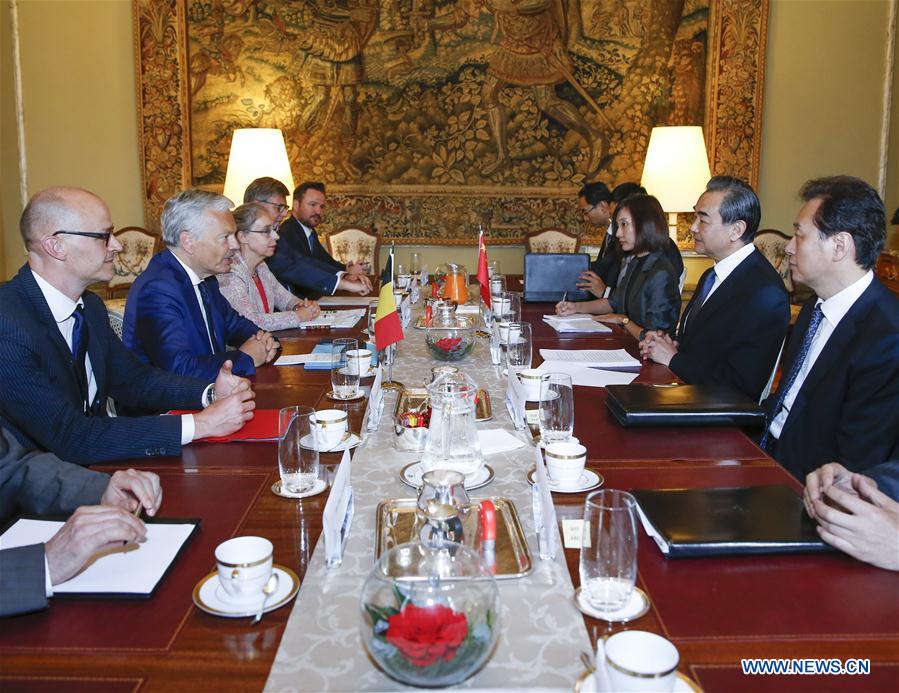
Visiting Chinese State Councilor and Foreign Minister Wang Yi (2nd R) meets with Belgian Deputy Prime Minister and Foreign Minister Didier Reynders (2nd L) at the Egmont Palace in Brussels, Belgium, on June 1, 2018. (Xinhua/Ye Pingfan)
BRUSSELS, June 2 (Xinhua) -- The top diplomats of China and Belgium met here Friday to discuss bilateral efforts to defend multilateralism and the global free trade regime.
Visiting Chinese State Councilor and Foreign Minister Wang Yi met with Belgian Deputy Prime Minister and Foreign Minister Didier Reynders at the Egmont Palace in Brussels.
Wang said the development of bilateral relations has entered a "fast lane" since they established an all-round partnership of friendship and cooperation in 2014.
High-level exchanges, pragmatic cooperation and people-to-people exchanges have all been strengthened over the past few years, Wang noted.
The two countries should continue to respect each other's core interests and major concerns, expand bilateral trade and investment, seek synergies between the China-proposed Belt and Road Initiative (BRI) and Belgium's development strategy so as to open up new prospects for cooperation, Wang elaborated.
He added that China is willing to strengthen dialogue with Belgium over international affairs in order to safeguard the international order centered around the United Nations and advocate an open world economy.
Reynders recalled his several visits to China, during which he witnessed the great achievements of China's reform and opening up.
He said Belgium attaches great significance to China's growing global influence, and applauds the China-proposed Belt and Road Initiative, adding that the country welcomes more investment from Chinese enterprises.
Under the current circumstances, Belgium wishes to strengthen communication and coordination with China within the multilateral framework, and to jointly defend the global free trade regime based on the World Trade Organization, said the Belgian minister.
Wang and Reynders also exchanged views on international and regional issues of common concern.















